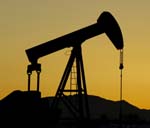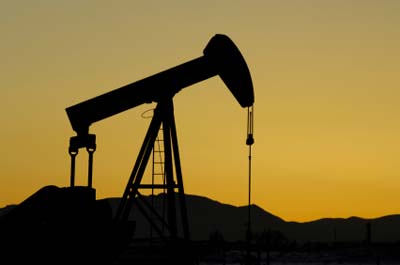Fracking: the pros and cons
Country Life considers the future of fracking in the UK with Former Environment Minister Lord Deben


Exquisite houses, the beauty of Nature, and how to get the most from your life, straight to your inbox.
You are now subscribed
Your newsletter sign-up was successful
Hailed as a game changer and the harbinger of cheap energy or as an ecological disaster, the cause of earthquakes and pollution, fracking's entrance into our lives has been colourful. The fundamentals are clear. Fracking is a method of extracting gas from rock formations by using high-pressure water and chemicals.
It enables us to extract from places that were hitherto uneconomic, but it's not cheap and is only cost-effective because of the high price of energy. Nevertheless, in the USA, it has transformed costs and is rapidly replacing coal as a source of generation. Dirty coal produces higher emissions, so fracked gas cuts American pollution and allows the country to claim to be fighting climate change. However, gas, like coal, is a fossil fuel. Its emissions are significant and, in the absence of carbon capture and storage, still contribute hugely to global warming.
Direct application of the American experience isn't easy because the population density in Europe is so much greater and we haven't got the wide-open spaces. There is also likely to be even more opposition from campaigning groups, although the USA is battling litigation and protest is widespread. There, it's widely seen as the long-term energy supply that will make the country self-sufficient and even an exporter of energy. Already, terminals only recently built to enable the import of gas from the Middle East are being turned into facilities for the export of American coal to Europe, coal that's no longer needed by the electricity generators, who have moved over to indigenous gas.
The result has been an abundance of cheap gas, which has lowered American manu-facturing prices and speeded the repatriation of jobs from the Far East. However, the International Energy Authority does expect the price of gas to double in the USA over the next decade and then continue to rise as the cheapest sources are used up and the more expensive come on stream.
In Europe, the situation is far less clear. Fracking got off to a shaky start in Britain, where the early attempts to produce gas near Blackpool appeared to cause minor earth tremors and the Government stepped in with a moratorium that has now been lifted. There is certainly gas out there, but we have little real knowledge about how much.
The figures are always in dispute, not least because it's in the interest of the exploration companies to claim huge finds, as that keeps the investment money flowing in. Even where that's not the case, as with Cuadrilla, the major operator, chaired by Lord Browne, the mood has swung from caution to exhilar-ation and back again, and the academic assessments continue to vary considerably.
Probably the best working assessment is that the UK could produce a significant amount of gas by 2030, but probably not enough to make it a game changer. None-theless, it would be well worth having as part of the portfolio of energy resources that we are likely to need. However, two widely held assumptions need to be approached with caution. The price of gas will not be a special low deal for the UK. Energy prices are regional and fracked gas is no exception. So the idea that there would be a cut-price supply for us is simply not true. Producers will sell to the highest bidders in the European zone and our costs will reflect that.
Exquisite houses, the beauty of Nature, and how to get the most from your life, straight to your inbox.
The idea that a gas bonanza is just round the corner is not a likely scenario. A better working assumption might be that fracked gas would provide enough gas to fulfil the heating needs of the off-grid population of the UK. That amount of fossil-fuel use is already factored into Britain's energy policy. The argument is, therefore, that, as long as electricity production is largely decarbonised by then, our home-produced gas wouldn't contravene the Climate Change Committee's carbon budget figures because fossil fuel use of this order has already been included.
All this is, however, a long way off. Fracking demands the use of very large machinery, close set drilling rigs and a great deal of water. People who object now to onshore wind will find the invasion of the frackers a nightmare. Planning permission will be a lot more diffi-cult on the South Downs and the Lincolnshire Wolds than in Nevada or South Dakota. The concept that a ‘dash for gas' is possible ignores the realities of our geography and politics. People won't allow the most beautiful countryside to be invaded by lines of large wellheads. Nor will water-scarce places give up their supply to feed the frackers.

Profitability is questionable in Europe, where mineral rights are public goods, unlike in the USA, where they're private property. Also, our environmental regulations are much tougher than those in America, so we can expect a more difficult growth in the UK. In the rest of Europe, it will be even more problematic as there are moratoria in place in most countries and an outright ban in France. Nonetheless, most believe that fracked gas will come, although European governments will insist on proper environmental safeguards.
The crucial thing will be to see we don't allow gas to be our overwhelming energy source. With the vast growth of demand in Asia and Africa, the pressure on energy supply will intensify. There won't be nearly enough European gas supply for our needs and we would be back relying on Vladimir Putin and his successors and the autocratic governments in the Middle East. We would then be at the mercy of high energy prices and lose any chance of the energy sovereignty the USA will have and we desperately need.
That's why we need to go for a portfolio of energy sources-offshore wind, onshore wind, solar, biomass and nuclear. Fracked gas will play its part, but it's a limited part and we'd be barmy to gamble our future on it.
Fracking on the Buccleuch estates
The Duke of Buccleuch, who owns four rural estates in the UK (three in Scotland, one in England), has been looking into better utilising his land's natural resources. In 2010, Greenpark Energy obtained planning permission for 19 well sites to drill for coal-bed methane on the Buccleuch estates, as well as a gas-compression facility. ‘There's a lot of misunderstanding and misuse of the term fracking,' explains Mark Oddy, hydrocarbons and minerals director for the Buccleuch Group. ‘Should we use it here, it's in a shallow context-coal already has fractures, so it's just a question of increasing those.'
The operation is currently on hold (Greenpark Energy was taken over last year, and its new parent company, Dart Energy, is reassessing the resource), but Mr Oddy believes fracking could have much to offer. ‘If we can unlock it, it will give the UK more security of supply. Land-owners can be seen as enablers for development, and it's a way of creating highly skilled jobs.' He stresses the importance of community consultation-as a result of it, Greenpark Energy was given planning permission first time. ‘You need to use the right operator. Remember, the estate doesn't own the coal or gas-it's just providing access.'
Country Life is unlike any other magazine: the only glossy weekly on the newsstand and the only magazine that has been guest-edited by His Majesty The King not once, but twice. It is a celebration of modern rural life and all its diverse joys and pleasures — that was first published in Queen Victoria's Diamond Jubilee year. Our eclectic mixture of witty and informative content — from the most up-to-date property news and commentary and a coveted glimpse inside some of the UK's best houses and gardens, to gardening, the arts and interior design, written by experts in their field — still cannot be found in print or online, anywhere else.
